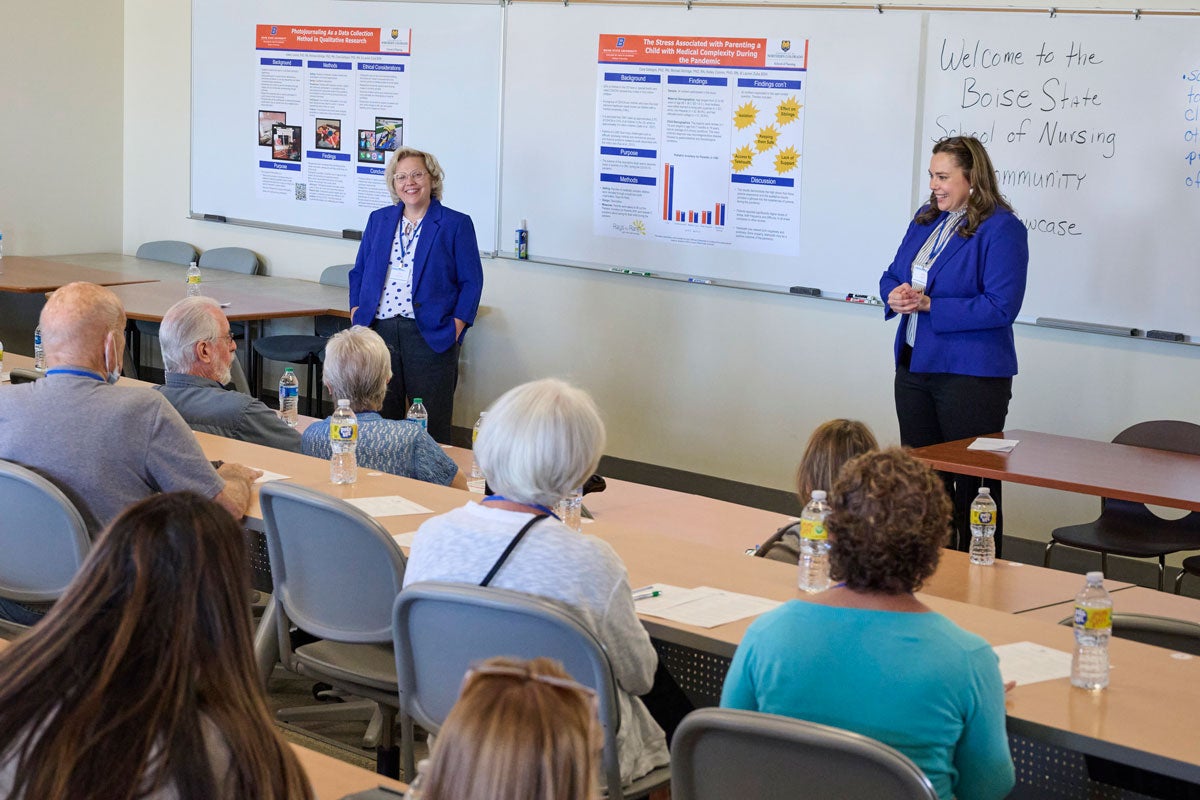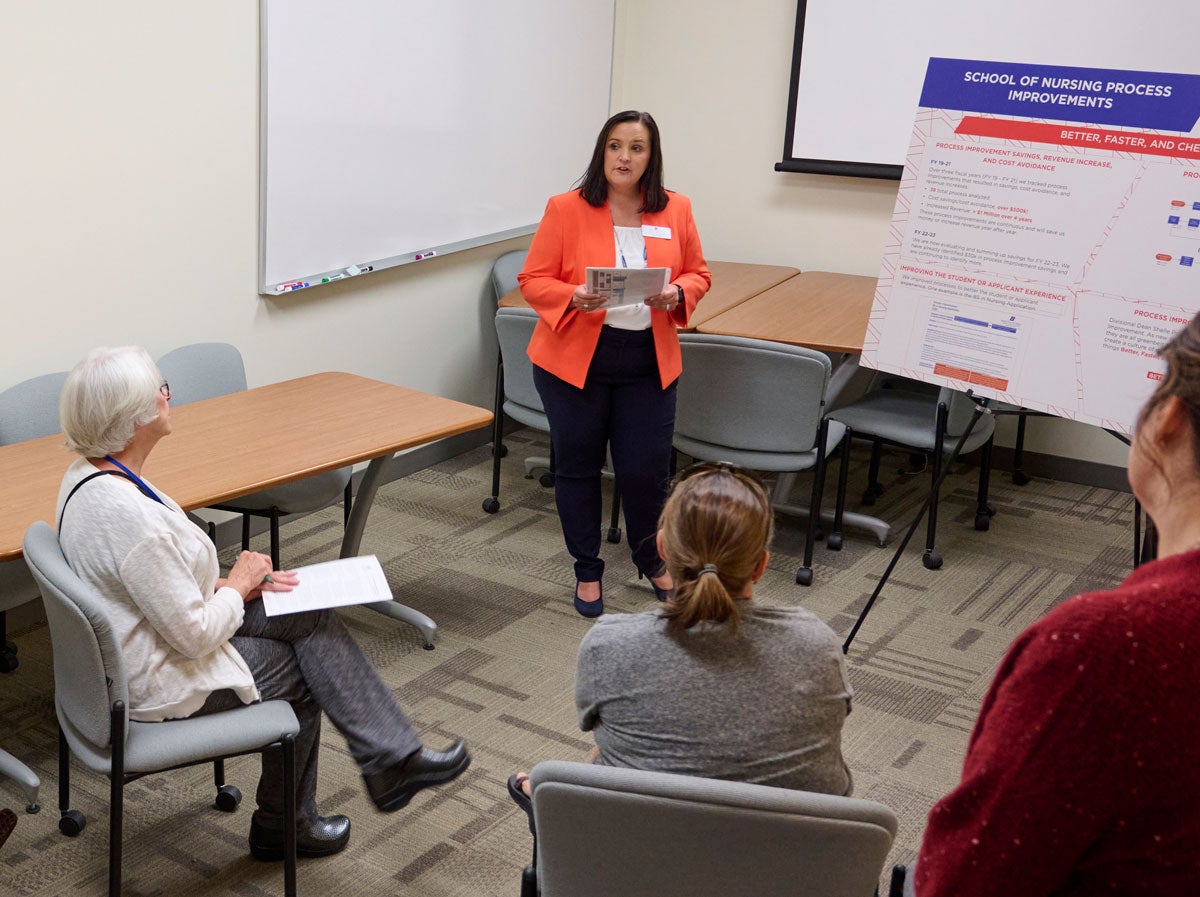If you visit the School of Nursing on any given week, you’ll likely find homemade food in a break room and notice employees chatting on the balcony or in each other’s offices. Potlucks and staff development workshops are a regular occurrence, and faculty often extend open invites to colleagues interested in visiting the theater or catching a hockey game together.
But being “better together” is about more than just camaraderie.
Faculty remain team-focused
It’s no secret: research is a central part of Boise State culture. Divisional Dean Shelle Poole and Associate Divisional Dean Amy Spurlock agree that faculty in the School of Nursing should be creative and innovative “research superstars.”

But having faculty who are also excellent team members and mentors is equally important to the deans.
Spurlock has already witnessed this kind of others-focused support from the school’s faculty. She recalls during one meeting when a newer faculty member boldly promoted the work of another faculty researcher who is rather quiet and humble about her work.
“One of our newer faculty knows [the other researcher’s] work and she basically said, ‘You’re really great at this, own it!’” Spurlock said. “It was just so great to see them lifting each other up.”
And this wasn’t a one-time occurrence. These same faculty frequently celebrate each other’s successes. You can even find them on Twitter together, retweeting one another and virtually cheering on their colleagues.
Greatness: The limit does not exist
The School of Nursing’s thriving culture is actually rather counter-cultural.
Traditionally speaking, academic settings are very competitive as scholars strive toward great achievement. Unfortunately, what starts as a healthy incentive to work hard and produce results often crosses the line to cutthroat antagonism between colleagues.
But Spurlock explained that the School of Nursing’s employees don’t hold to the old idea that “if I’m great you have to be bad,” as if there’s a finite amount of greatness to go around. Instead, she said it’s more like “a rising tide lifts all boats” – that is, if one individual thrives, the whole school benefits.
Poole affirms that there’s “enough greatness for all of us to succeed.”
Staff eagerly lend a helping hand
For staff members, being “better together” means having a ready willingness to help.
During a workshop this past May, School of Nursing staff discussed ways they could make workloads easier for one another, especially during the adult gerontology nurse practitioner summer intensive. This is the annual week of on-campus classes for advanced practice nursing students, and it’s no small feat to pull off a smooth session.
So one staff member suggested they create an easy way to ask each other for help. Enter the “S.O.S.” chat space.
This Google chat space is specifically for any staff member in need of a helping hand (hence naming it “S.O.S.”). This could be anything from carrying groceries up to the break room or seeking the technical skills of someone more well-versed in spreadsheets than yourself.

And the S.O.S. chat has already outlived the summer intensive session to become a part of everyday activities.
“The team was excited for this idea,” said Candice Johnson, senior business operations manager at the School of Nursing. “It really has been a wonderful addition to our daily work responsibilities.”
The staff are eager to help carry one another’s burdens, and the S.O.S. chat created a dedicated space where they know assistance is never more than a message away.
Better employees for better nurses
“Better together” is not just a nice phrase that guides school culture; it’s an operating system in which every School of Nursing employee knows they have the support of one another.
But the supportive culture overflows to students too. The nurses of the future now have evidence they don’t have to be on their own in order to succeed in the workplace. The School of Nursing sets an example of a healthy workplace team, proving that selfless teamwork really does benefit everyone.